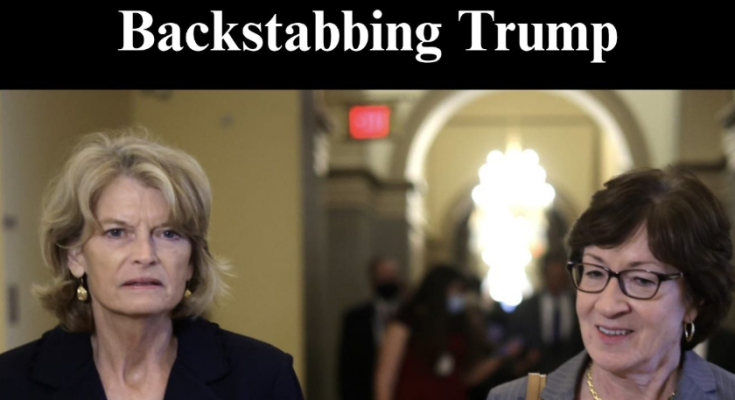
This article may contain commentary
which reflects the author’s opinion.
Republican Sen. Susan Collins got some bad news on Monday about her reelection in Maine. In a state that Kamala Harris won last November, Collins is the sole Republican senator running for reelection.
Collins, who is seen as the most centrist Republican in the Senate and has been popular in the state for a long time, has won tough races for Republicans in the past. The race is viewed as among the most competitive ahead of the 2026 midterms and is set to draw heavy investment from both major parties.
A new Cygnal survey released on Monday showed Collins behind a generic Democratic candidate. This suggested that extending Affordable Care Act (ACA) subsidies could help her win over Mainers. Politico was the first to report on the poll.
According to the survey, 41% of those who answered said they would vote for Collins, while 49% said they would vote for a Democrat. The report said that she “starts behind but beats expectations.”
If the Republican senator votes to extend the tax benefits, the election would get closer.
“Collins consistently overperforms the GOP baseline, especially among college-educated women (+8 net), voters over 55 (+6), and swing voters (+10),” the polling memo reads.
The ACA, which was President Barack Obama’s main program, gave Congress the power to make those credits. They let Americans with low incomes sign up for health insurance coverage. During the COVID-19 pandemic in 2021, they were enlarged so that more Americans could get insurance while the economy was dealing with the effects of the virus.
If Congress doesn’t do anything, they will probably run out by the end of the year. As part of a deal with moderate Democratic senators to reopen the government, Senate Republicans are going to vote on the tax credit.
The poll revealed that 43% of people would vote for Collins if he votes to prolong the tax credits, while 45% would vote for the Democratic candidate. That still gives the Democrats a small edge, but it shows that the battle is close.
CBS News stated that Collins favors their extension but thinks they require “reform.”
There were no questions concerning individual candidates in the survey. Mills and Platner are in a heated primary race on the Democratic side to see who will oppose Collins. Collins hasn’t officially started her campaign yet, but she has said she plans to run again.
Polls have shown that the race is quite close. A poll from the Maine People’s Resource Center last month showed Collins ahead of Mills by four points (46% to 42%), and Platner ahead of Collins by four points (45% to 41%). It asked 783 Maine voters from October 26 to 29, and the results could be off by as much as 3.5 percentage points.
Last November, Harris trounced President Donald Trump by around seven points in the Pine Tree State. This was a small decrease from former President Joe Biden’s nine-point win in Maine in 2020, which was a lesser change than in most other states.
The Cygnal polling report reads: “Swing voters (+6 net) and a Moderates segment (16% of the electorate)—moderate, female, older, and less college-educated—hold the key to victory. If Collins supports extension, she outperforms Trump’s 2024 ballot share with this Moderate segment by 16 points. If she opposes extension, her support falls to 15 points below Trump’s share.”
Governor Janet Mills has attacked Collins over health care in a November 14 post to X: “Let me make something very clear—Susan Collins is contributing to skyrocketing health care costs for families across Maine. It’s reckless and just plain wrong. We will vote her out in 2026.”
Forecasters like the Cook Political Report and Sabato’s Crystal Ball classify the race as a pure toss-up.


